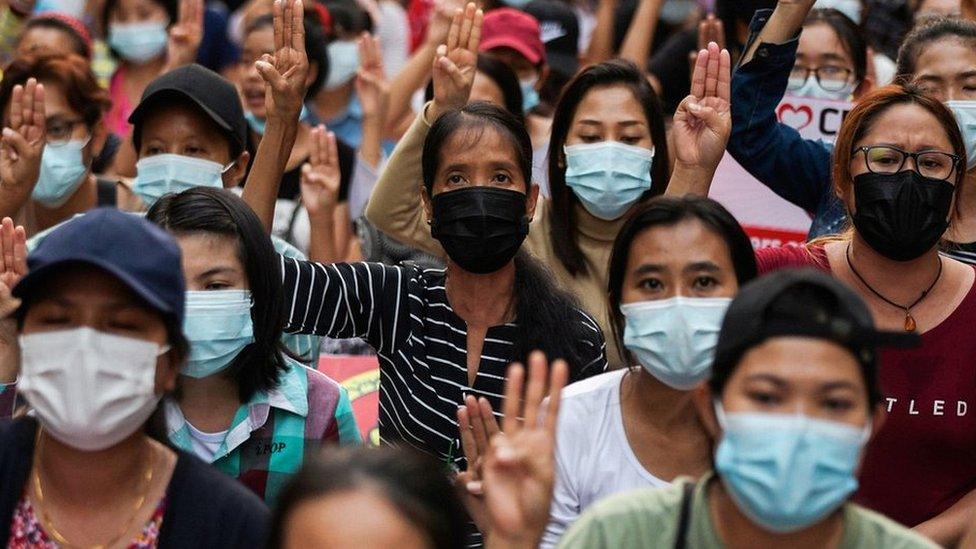Myanmar: Aung San Suu Kyi charged with violating secrets law
- Published
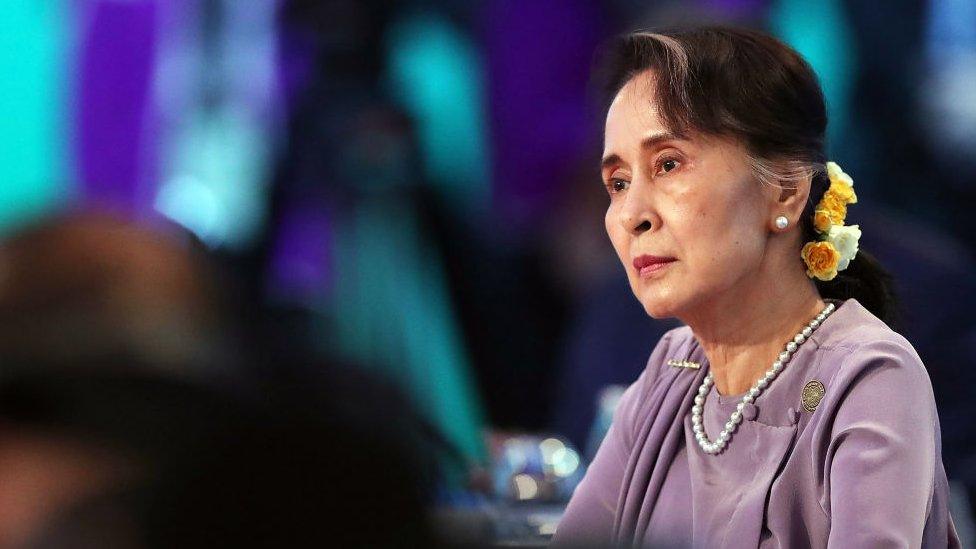
It comes a day she appeared by video link in court in connection with earlier charges
Myanmar's ousted leader Aung San Suu Kyi has been charged with breaking a colonial-era official secrets law, the most serious charge filed against her so far.
Her lawyer told Reuters he learned of the new charge - which carries a term of up to 14 years - just two days ago.
The new charge comes a day after Ms Suu Kyi appeared by video link in court in connection with earlier charges.
She was arrested on 1 February when the military grabbed power in a coup.
They allege that a general election last year, which saw Ms Suu Kyi's ruling National League for Democracy (NLD) win by a landslide, was fraudulent - though there is no evidence of this.
Myanmar has been rocked by weeks of protests since the coup that have been met with increasingly violent military crackdowns. More than 500 - including 40 children - have been killed so far.
Ms Suu Kyi has not been seen publicly since her arrest.
What are the charges she faces?
Ms Suu Kyi's chief lawyer, Khin Maung Zaw, told Reuters that Ms Suu Kyi, along with three of her deposed cabinet ministers and a detained Australia economic adviser, Sean Turnell, has been charged under the official secrets law.
He said they were charged a week ago in a Yangon court, but that he had only learned of it two days ago.
The 75-year-old ousted leader already faces charges of corruption, with the military alleging that she accepted $600,000 (£430,000) in cash and 11kg of gold.
She has also been charged with violating the country's Natural Disaster Law and with possessing illegal walkie-talkies.
Ms Suu Kyi appeared in court via video link on Thursday in connection with some of these charges. One of her lawyers, Min Min Soe, said she appeared to be in good health.
What's the context to this?
Myanmar's military seized power in the South East Asian nation after overthrowing the government and declared a state of emergency.
Just days later, the civil disobedience movement began to emerge - professionals refusing to return to work in protest.
The movement quickly started to gain momentum and it was not long before hundreds of thousands of people began taking part in street protests.
But there has increasingly been an escalation of violence between police officers and civilians.
Rights group the Assistance Association for Political Prisoners say more than 500 people have been killed since the military crackdown began.
Myanmar coup: How did we get here?
Related topics
- Published13 February 2021
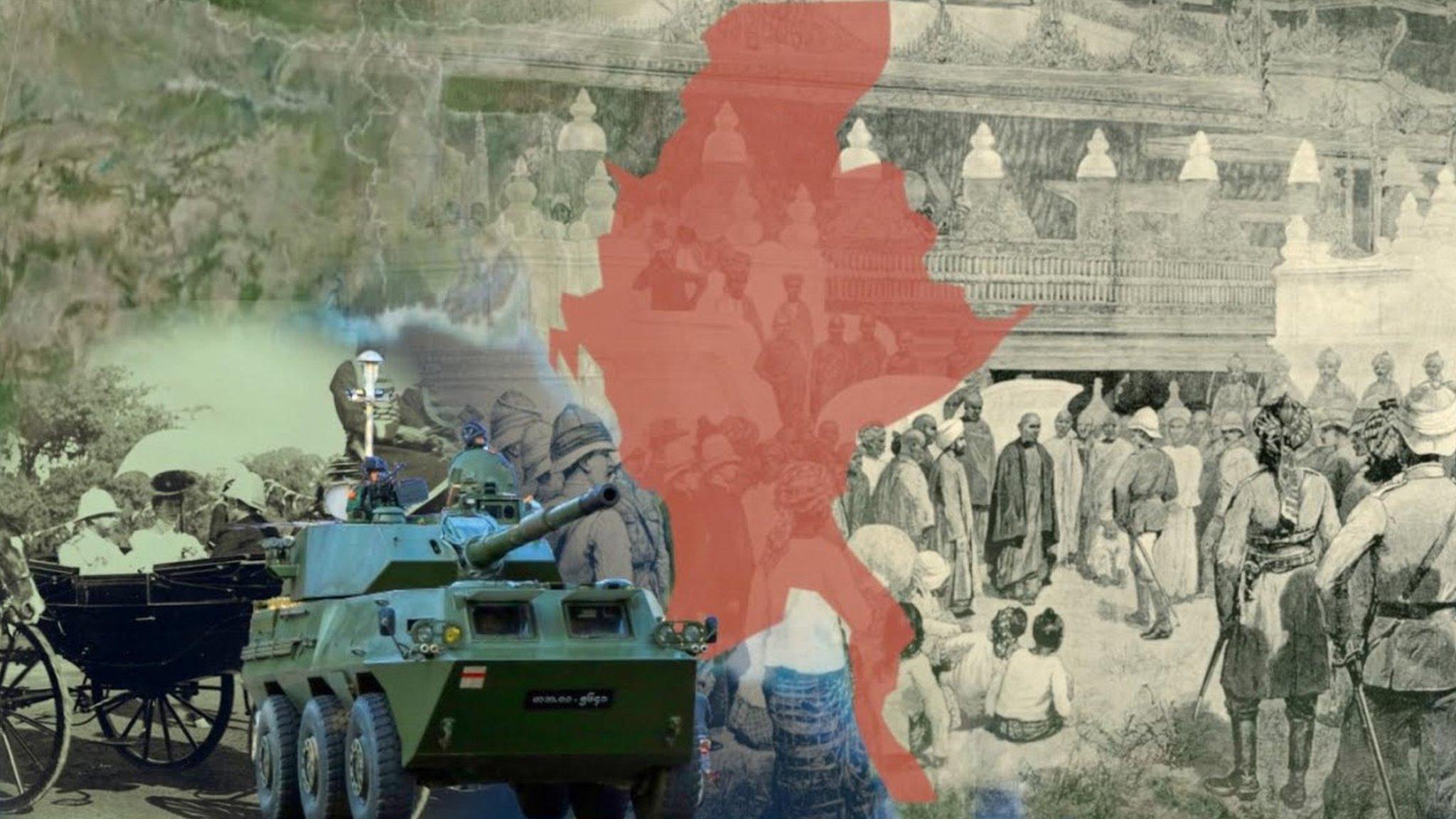
- Published1 April 2021

- Published6 December 2021
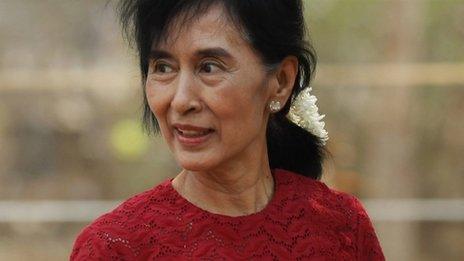
- Published21 March 2021
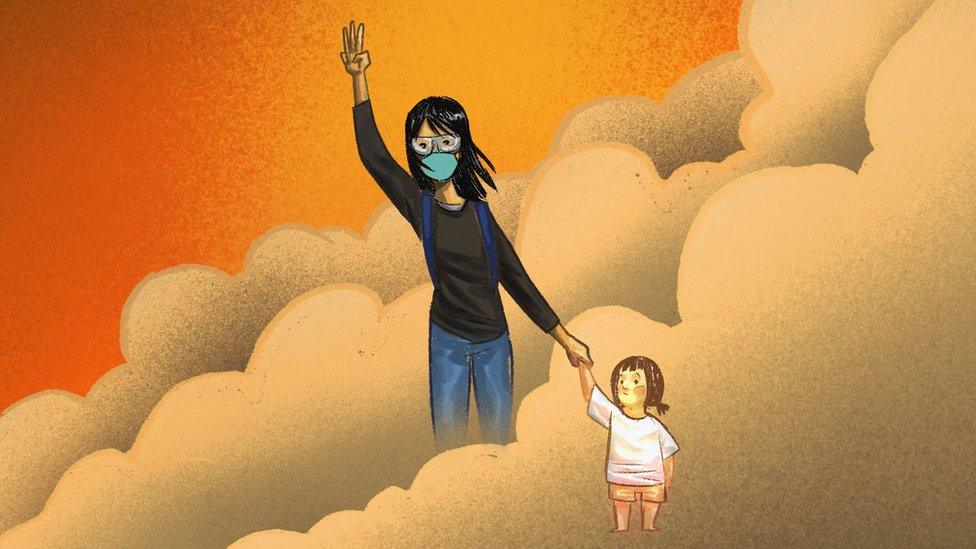
- Published25 July 2022
